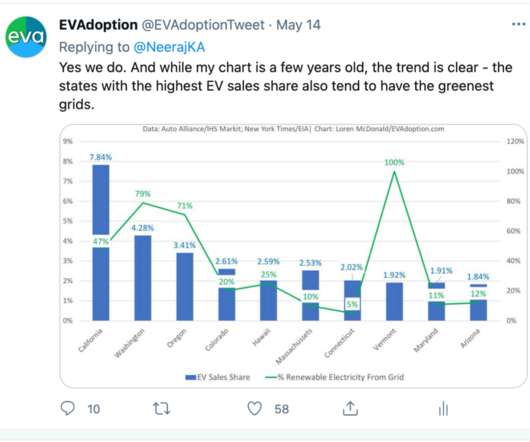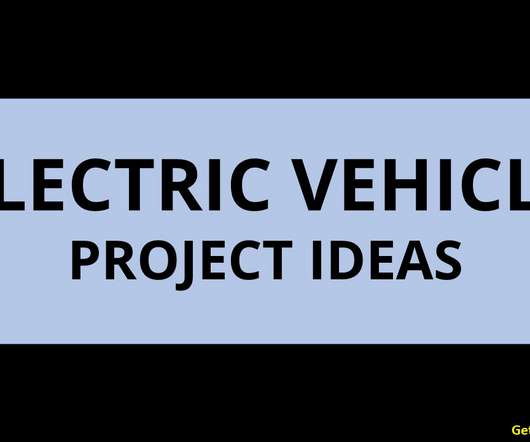Are EVs Charged Mostly By Coal Power in the US?
EV Adoption
MAY 25, 2021
One of the common arguments you hear from people in America who are not fans of the idea of electric vehicles is that they are mostly charged from electricity produced from coal power plants. Heavy Coal Using States Accounted for Only 10% of EV Sales in 2020. The argument that EVs are powered mostly from coal simply isn’t true.































Let's personalize your content